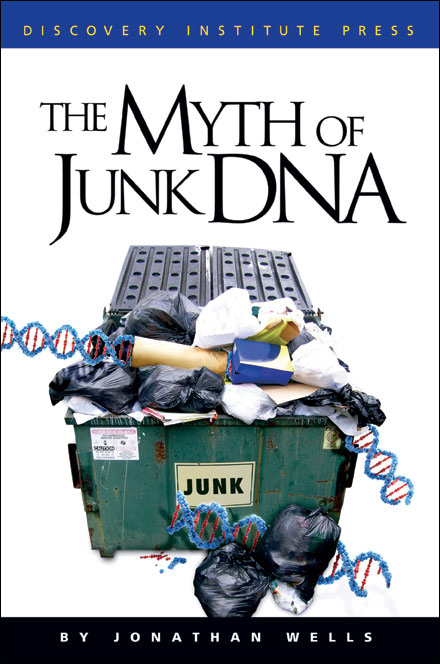Preface to The Myth of Junk DNA by Jonathan Wells
[Editor’s Note: The following is an excerpt from Jonathan Wells’ new book, The Myth of Junk DNA, out this month.]
 The discovery in the 1970s that only a tiny percentage of our DNA codes for proteins prompted some prominent biologists at the time to suggest that most of our DNA is functionless junk. Although other biologists predicted that non-protein-coding DNA would turn out to be functional, the idea that most of our DNA is junk became the dominant view among biologists.
The discovery in the 1970s that only a tiny percentage of our DNA codes for proteins prompted some prominent biologists at the time to suggest that most of our DNA is functionless junk. Although other biologists predicted that non-protein-coding DNA would turn out to be functional, the idea that most of our DNA is junk became the dominant view among biologists.
That view has turned out to be spectacularly wrong. Since 1990–and especially after completion of the Human Genome Project in 2003–many hundreds of articles have appeared in the scientific literature documenting the various functions of non-protein coding DNA, and more are being published every week.
Ironically, even after evidence for the functionality of non-protein coding DNA began flooding into the scientific literature, some leading apologists for Darwinian evolution ratcheted up claims that “junk DNA” provides evidence for their theory and evidence against intelligent design. Since 2004, biologists Richard Dawkins, Douglas Futuyma, Kenneth Miller, Jerry Coyne and John Avise have published books using this argument. So have philosopher of science Philip Kitcher and historian of science Michael Shermer. So has Francis Collins, former head of the Human Genome Project and present director of the National Institutes of Health, despite the fact that he co-authored some of the scientific articles providing evidence against “junk DNA.”
These authors claim to speak for “science,” but they have actually been promoting an anti-scientific myth that ignores the evidence and relies on theological speculations instead. For the sake of science, it’s time to expose the myth for what it is.
Far from consisting mainly of junk that provides evidence against intelligent design, our genome is increasingly revealing itself to be a multidimensional, integrated system in which non-protein-coding DNA performs a wide variety of functions. If anything, it provides evidence for intelligent design. Even apart from possible implications for intelligent design, however, the demise of the myth of junk DNA promises to stimulate more research into the mysteries of the genome. These are exciting times for scientists willing to follow the evidence wherever it leads
Visit the book website for more about The Myth of Junk DNA by Jonathan Wells.
